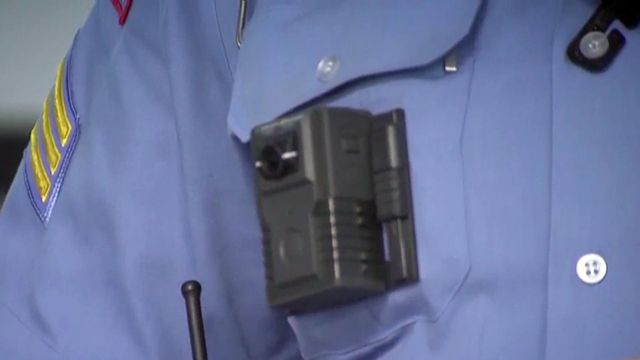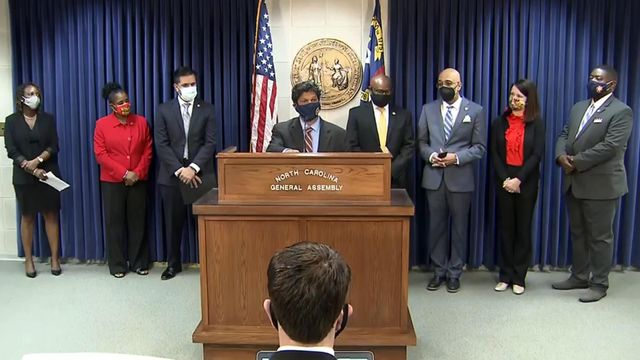Elizabeth City shooting prompts push to change NC law on body camera video
Less than a week after deputies shot and killed a man in Elizabeth City, Democratic lawmakers called Tuesday for updates to North Carolina's law on how video from officers' body-worn and dashboard cameras is handled.
Posted — UpdatedAttorneys for Brown's family noted that more than a half-dozen deputies and several vehicles were at the scene, so much more video showing different perspectives is available.
"They determined what was pertinent," attorney Ben Crump said at a Monday news conference. "We want all of it, because that's what transparency is. Let us see it with our own eyes. We don't need you to interpret it for us."
The law does allow authorities to limit what video is shared to "those portions of the recording that are relevant to the person's request."
The public also has clamored for release of the video so they can judge the actions of Brown and the deputies themselves. Pasquotank County authorities have requested the necessary court order to allow public dissemination, and a hearing is scheduled for Wednesday.
Democratic lawmakers said Tuesday that the law only promotes mistrust between law enforcement and the public and needs to be updated. Senate Bill 510, which was filed two weeks before Brown's death, would flip the state law on its head, requiring that bodycam and dashcam video be released within 48 hours, if someone requests it, unless a law enforcement agency obtains a court order to restrict access to it.
"Accountability requires transparency, and the law, as currently written, delays that transparency," said Sen. Mujtaba Mohammed, D-Mecklenburg, one of the bill sponsors.
"The death of Mr. Brown and the actions of authorities afterwards have clearly demonstrated the inadequacies and fallacies of our current body-cam release law," said Rep. Amos Quick, D-Guilford. "With so many hoops and obstacles put in the way, we have what we have now: a grieving family and a state with more questions than answers."
Quick and other House Democrats filed a similar bill in the House Tuesday. But co-sponsor Rep. James Gailliard, D-Nash, said the bills aren't just a response to Brown's death, noting a push in recent months for reforms in the criminal justice system and policing to achieve more racial equity.
But many proposed reforms have wound up in the legislative equivalent of the trash can, Gailliard said, and Republican legislative leaders need to consider the Democratic-backed body-cam video bills.
"Passing the House right now is a bill to change the state mammal to a black bear," he said. "It should not be lost on us that we have time to legislate about black bears but not about Black people."
Sen. Danny Britt, R-Robeson, chairman of the Senate Judiciary committee, said he's open to looking at possible revisions to the bodycam video law but that it's too early to call it broken when the request for a court order for public dissemination of the video of Brown's shooting was filed only Monday.
"The goal [of the law] was to remove politics from the decision-making process and to forestall the possibility of a law enforcement agency refusing to release video," Britt said in a statement.
Rep. John Faircloth, R-Guilford, a former police chief who crafted the current law, said Tuesday that he believes it still works and only needs to be applied properly.
“We need to have an uninvolved third party to make the judgment [on releasing video]," Faircloth said. "It’s just a matter of someone taking the reins and getting it to [the judge].”
• Credits
Copyright 2024 by Capitol Broadcasting Company. All rights reserved. This material may not be published, broadcast, rewritten or redistributed.






